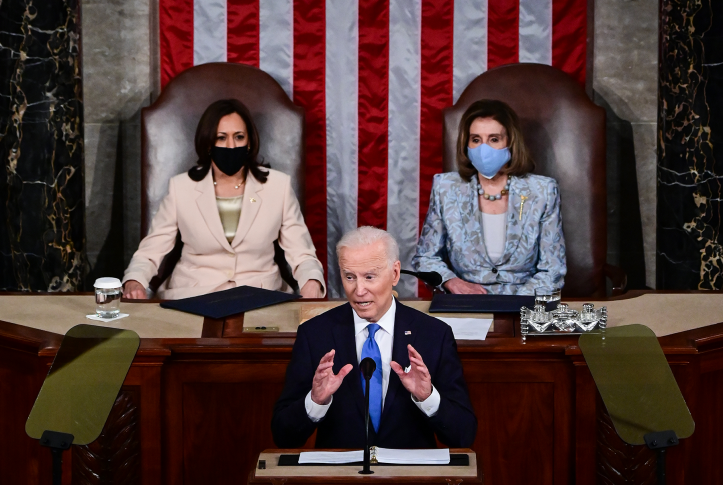President Biden set out an ambitious health care agenda in his campaign and initial executive orders. The administration moved quickly to manage the COVID pandemic, and then pivoted to address pending health care coverage litigation. It has moved more slowly in implementing its ambitious agenda through regulations. This post will examine Biden’s executive orders, administrative actions, regulatory initiatives, and litigation related to health care coverage.
Executive Orders
President Biden issued around 40 executive orders, memoranda, and presidential proclamations in his first 10 days, a dozen of which pertained to health care. He stated that it is the policy of the administration “to protect and strengthen Medicaid and the Affordable Care Act and to make high-quality care accessible and affordable for every American.” He directed the secretaries of Treasury, Labor, Health and Human Services (HHS), and other departments to review existing regulations and policies to ensure they are consistent with the goals of strengthening the ACA and Medicaid and to revise or rescind inconsistent actions.
More specifically, the executive orders, as explained by the White House, directed the agencies to review Trump rules and policies that involved turning over marketplace enrollment functions to private entities and using Medicaid Section 1115 waivers to implement work requirements and block grants. They also targeted policies that make enrollment in Medicaid and ACA coverage more difficult and procedures and practices that reduce the affordability of coverage or financial assistance.
Administrative Actions
The Biden administration moved quickly to take actions that it could implement without rulemaking, including establishing a special-enrollment period for the federal marketplace from February 15 through August 15. New enrollees may sign up and existing enrollees may update their information and change plans. The Centers for Medicare and Medicaid Services will spend $100 million in advertising and outreach and $80 million for a navigator program to help people sign up for coverage.
HHS sent letters to 11 states that had been granted Medicaid waivers to impose work requirements informing them it would be considering withdrawing their waivers and then sent withdrawal notices to four (Arkansas, Michigan, New Hampshire, and Wisconsin). Waivers in Arkansas and New Hampshire are pending before the Supreme Court.
On April 14, the Biden administration issued proposed regulations governing the Title X family planning program. They will, if finalized, reverse prior policies and eliminate the Trump administration’s “gag rule,” which prohibits Title X grantees from referring patients to abortion providers. The Biden administration’s motion to dismiss the Supreme Court petitions on the Title X regulations is pending.
On April 30, the administration finalized its annual payment rule, which will govern insurers and exchanges for 2022. The rule rejected numerous changes the Trump administration had proposed in December. It made it easier for consumers to enroll in exchange coverage midyear and allowed them to do so after COBRA subsidies expired. It altered the Trump administration’s methodology for measuring premium inflation, reducing the maximum amount insured people have to pay out-of-pocket by $400. The rule also promised that changes the Trump administration made in January to ACA market regulations would be revisited, including a rule allowing states to privatize marketplaces.
Legislation
On March 11, Congress adopted Biden’s American Rescue Plan (ARP). By increasing premium tax credits for 2021 and 2022, ARP reduces the amount that marketplace enrollees must spend for coverage and, for the first time, makes people who earn more than 400 percent of the federal poverty level (i.e., $51,520 for an individual) eligible for marketplace subsidies. Biden’s proposed American Families Plan would make these subsidies permanent. The ARP also will pay 100 percent of premiums from April to September for people with COBRA coverage and extend marketplace subsidies to people who received unemployment compensation in 2021.
Litigation
In many areas of health care law, the Biden administration has inherited responsibility for defending Trump administration policies against court cases attacking those policies. It has tried to get these cases put on hold, sometimes proposing policies to replace Trump policies, and sometimes trying to reach agreements with the litigants who had attacked the policies.
By the time the Biden administration took office, four sets of health care cases were at the U.S. Supreme Court. They were about the ACA’s individual mandate, Medicaid work requirement waivers, Title X, and the immigration public charge rule. The Biden administration filed a letter in California v. Texas, the individual mandate case, saying it did not agree with the Trump administration’s view that the entire ACA was invalid. The case remains pending at the Court; Biden administration motions to dismiss the Supreme Court’s Medicaid waiver and Title X cases also remain pending. The one case that is almost completely over is a case attacking the Trump administration’s “public charge” rule, which made immigrants’ receipt of Medicaid an impediment to their path to citizenship. In that case, a judge in Chicago had vacated the Trump rule and the Biden administration agreed with the plaintiffs to drop the U.S.’s appeal, which the Supreme Court was about to consider. Several states then tried to intervene before the Supreme Court, but the court denied their request, suggesting that they file their papers in the federal district court in Chicago.
There are other cases where litigants have challenged a variety of Trump administration rules, and the Biden administration has asked for the cases to be put on hold. These include rules involving association health plans, regulation requiring insurers that offer marketplace insurance that offer abortion coverage to issue a separate bill for that coverage, rules to implement the so-called statutory conscience protections, the Georgia 1332 waiver that has dispensed with HealthCare.gov, and a case against the Trump administration’s “sunset” regulations, which would automatically have repealed regulations that have been on the books for 10 years but haven’t been specifically reaffirmed by HHS.




